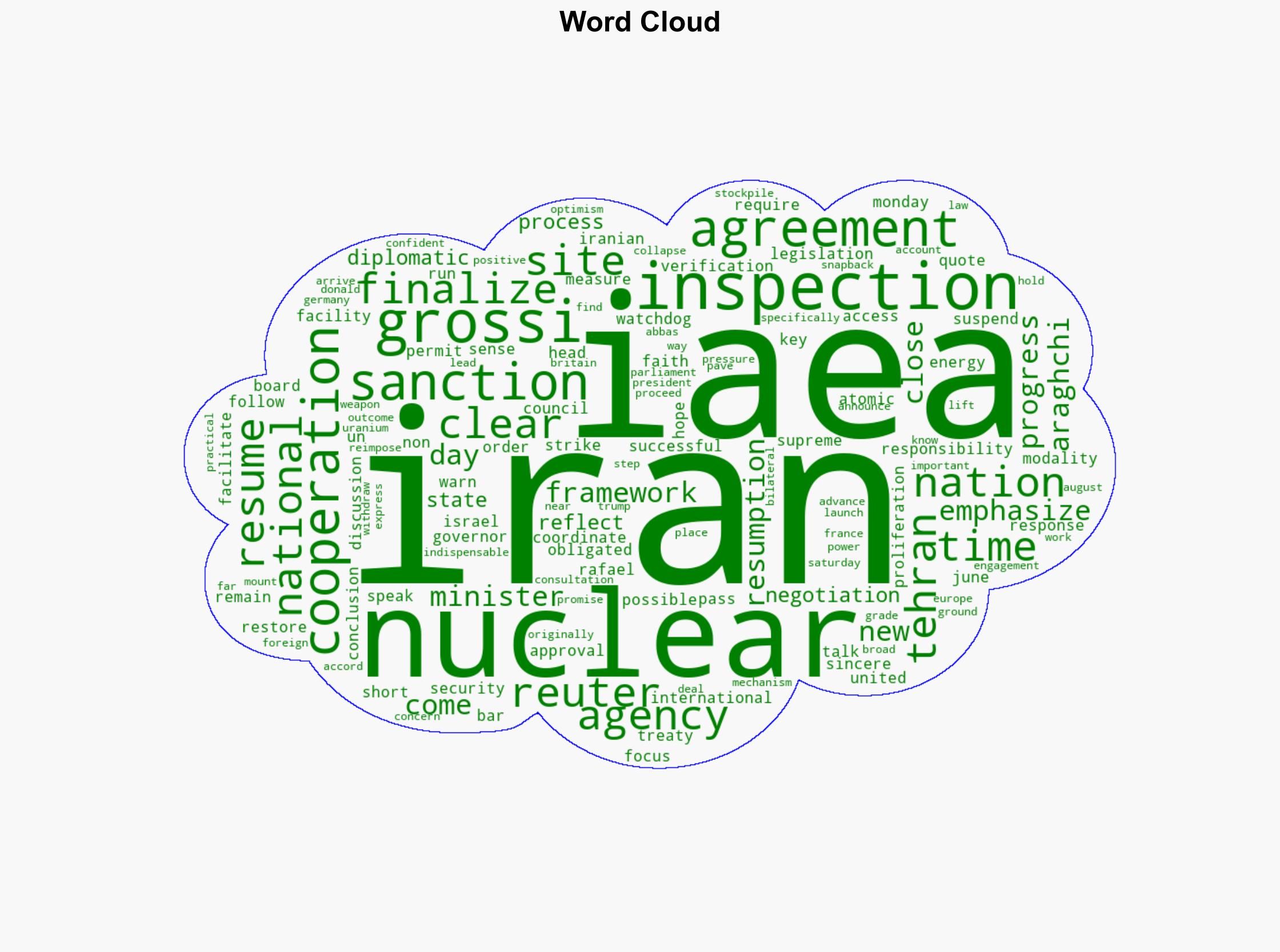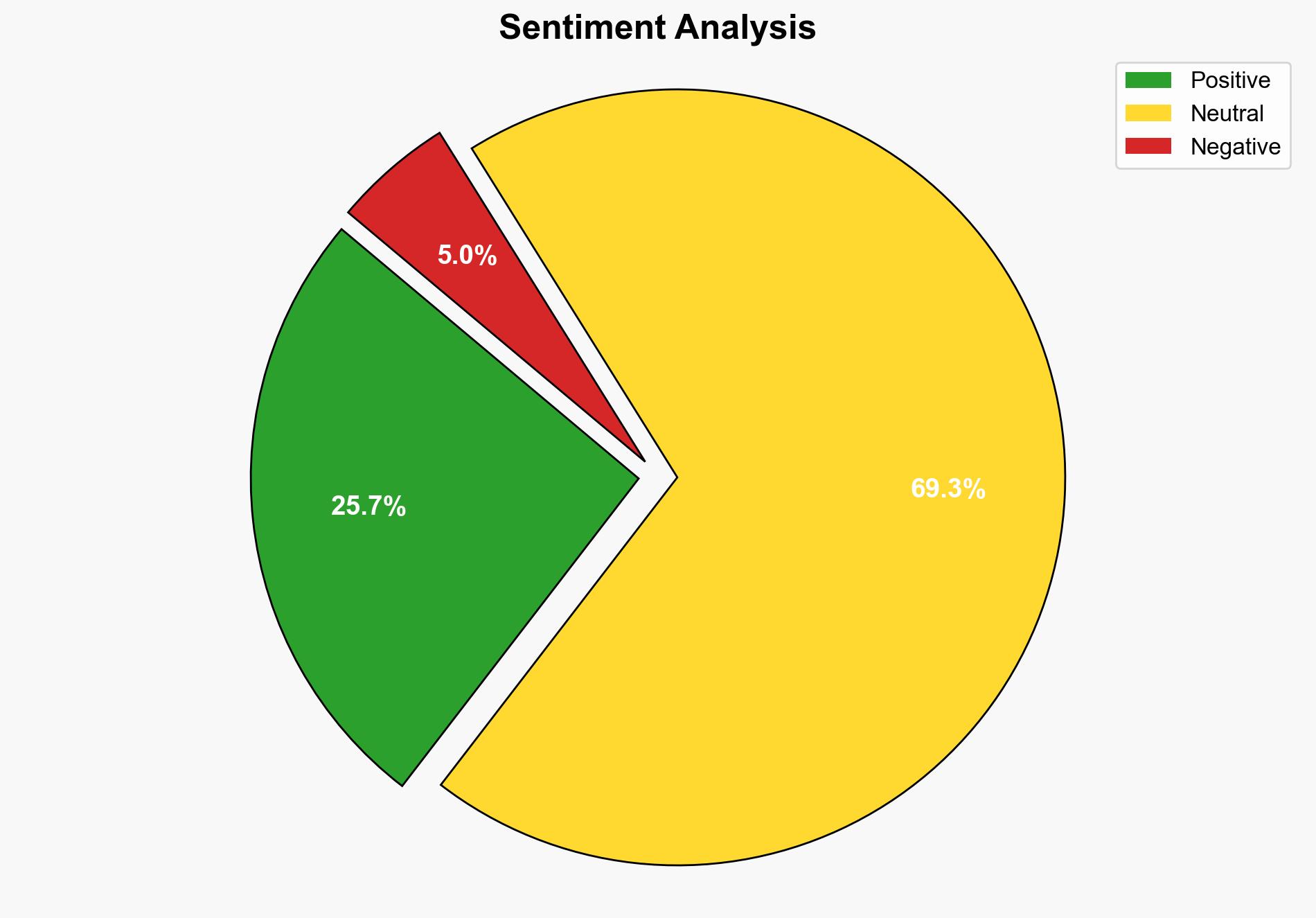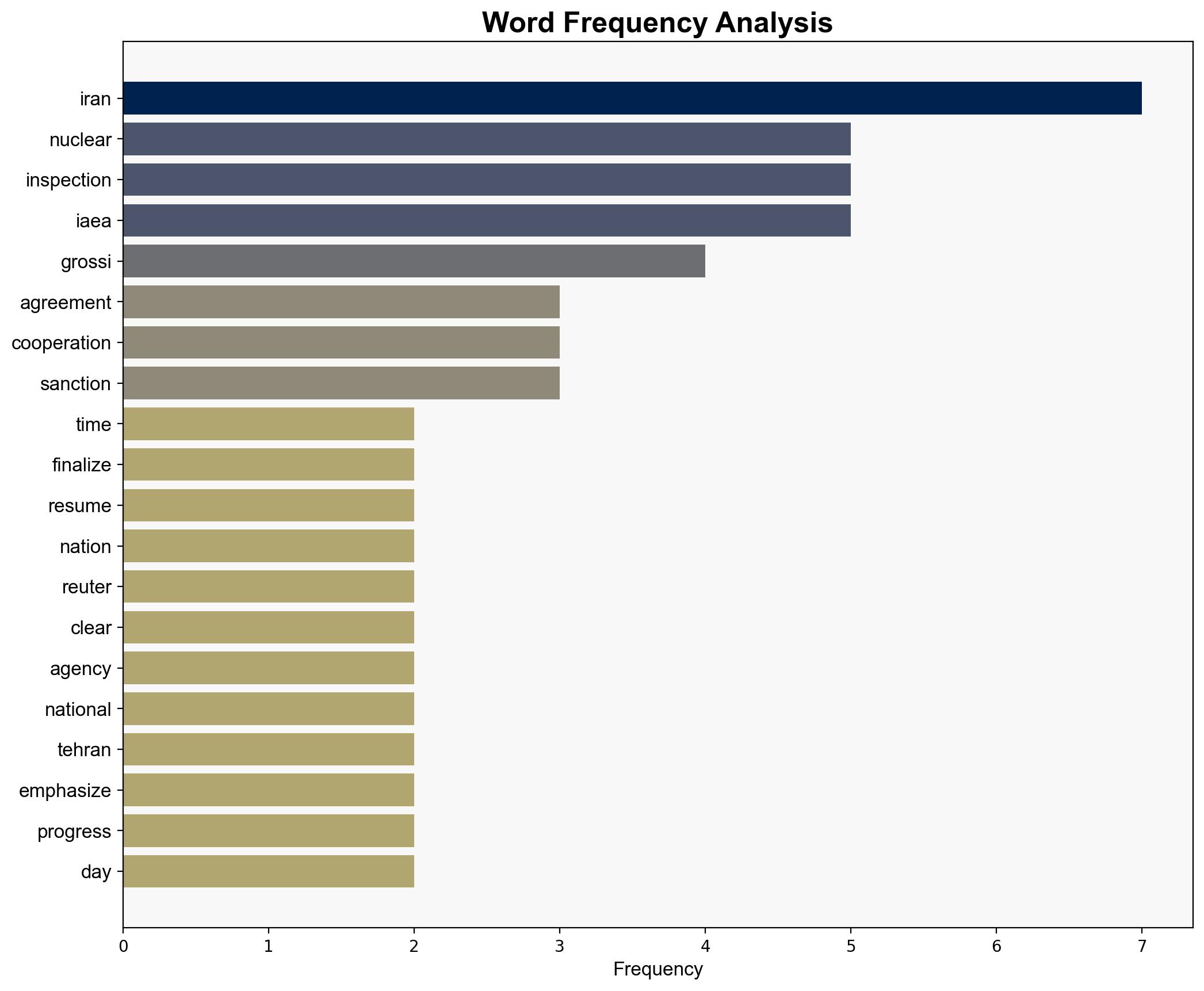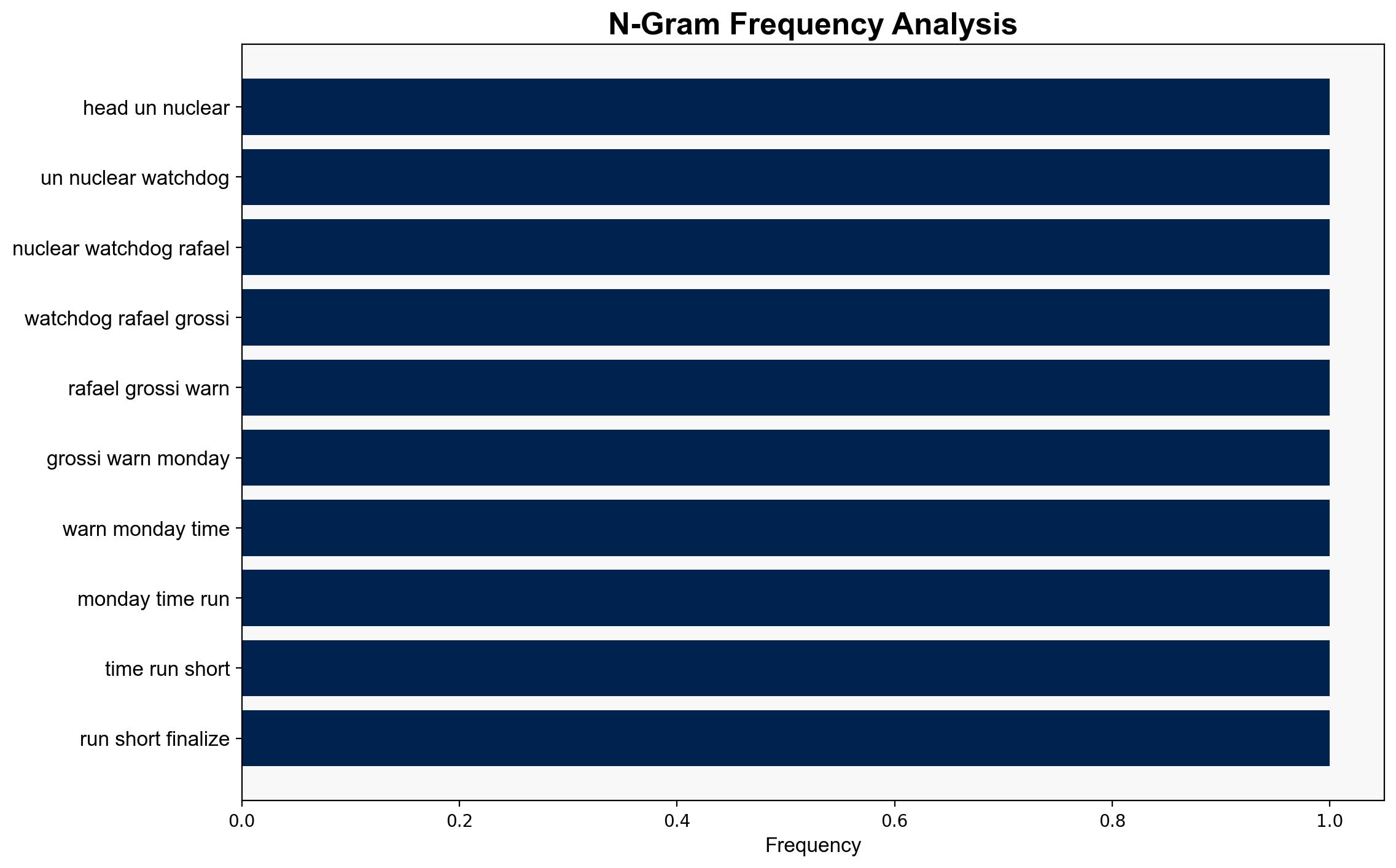IAEA chief Time running out to resume Iran nuclear inspections – Israelnationalnews.com
Published on: 2025-09-09
Intelligence Report: IAEA chief Time running out to resume Iran nuclear inspections – Israelnationalnews.com
1. BLUF (Bottom Line Up Front)
The most supported hypothesis is that Iran is strategically delaying nuclear inspections to strengthen its negotiating position while adhering to domestic legislative constraints. Confidence level is moderate due to limited transparency in Iran’s internal decision-making processes. Recommended action includes diplomatic engagement with key stakeholders to facilitate a timely agreement and prevent further escalation.
2. Competing Hypotheses
Hypothesis 1: Iran is delaying nuclear inspections to gain leverage in negotiations, using the threat of increased uranium enrichment as a bargaining chip to lift sanctions and secure economic concessions.
Hypothesis 2: Iran’s delay in resuming inspections is primarily due to internal political dynamics and legislative requirements, rather than a strategic ploy to enhance its bargaining position.
Using ACH 2.0, Hypothesis 1 is better supported by the pattern of Iran’s past negotiation tactics and the timing of its legislative actions, which align with international diplomatic pressures. Hypothesis 2 is less supported due to the lack of clear evidence that internal politics are the primary driver.
3. Key Assumptions and Red Flags
Assumptions include the belief that Iran’s legislative actions are genuine and not a facade for strategic delay. A red flag is the potential underestimation of Iran’s internal political complexities and their impact on foreign policy decisions. Inconsistent data includes the lack of transparency in Iran’s legislative processes and decision-making.
4. Implications and Strategic Risks
Failure to resume inspections could lead to increased regional tensions and potential military confrontations, particularly involving Israel and the United States. Economic sanctions could further destabilize Iran’s economy, potentially leading to domestic unrest. Cybersecurity threats may also increase as Iran seeks alternative means to counteract sanctions.
5. Recommendations and Outlook
- Engage diplomatically with European powers to mediate between the IAEA and Iran, emphasizing the importance of inspections for regional stability.
- Prepare for potential escalation by enhancing regional intelligence capabilities and cybersecurity defenses.
- Scenario-based projections:
- Best Case: Iran resumes inspections, leading to eased sanctions and improved diplomatic relations.
- Worst Case: Breakdown in negotiations results in military conflict and economic collapse in Iran.
- Most Likely: Prolonged negotiations with intermittent progress, maintaining a status quo of tension.
6. Key Individuals and Entities
Rafael Grossi, Abbas Araghchi
7. Thematic Tags
national security threats, nuclear proliferation, diplomatic negotiations, regional focus




